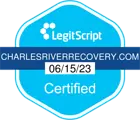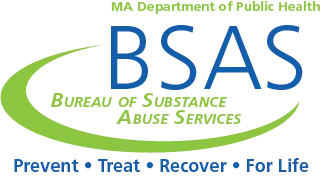A Guide to Alcohol Detox and Treatment
It is no secret that excessive alcohol use is a major issue in the United States. An estimated 29.5 million Americans aged 12 and older had an alcohol use disorder (AUD) in 2022. Alcohol use disorder is defined as a mental health condition characterized by a person’s impaired ability to stop or reduce their consumption of alcohol despite negative consequences to their work, relationships, or health.
Excessive alcohol consumption increases the risk of health issues, such as liver disease, heart disease, and certain cancers. Additionally, alcohol consumption while pregnant can increase the risk of stillbirth, premature delivery, low birth weight, and other poor pregnancy outcomes. Alcohol use disorders also impact the lives of nondrinkers. Alcohol is a common denominator in many traffic accidents, assaults, and domestic violence cases.
Mental Illness and Alcohol Use Disorders Often Go Hand in Hand
One of the things that makes it difficult for some people to stop drinking is mental illness. Many who struggle with anxiety, depression, and other mental disorders use alcohol to self-medicate. Some also develop these conditions as a result of their heavy drinking. That’s because excessive alcohol consumption can trigger changes in brain structure and function that increase the risk of developing a mental disorder. When someone has a substance use disorder complicated by a mental health issue, it is referred to as a co-occurring disorder.
Consequences of an Untreated Co-Occurring Disorder
Over 21 million U.S. adults reported struggling with a co-occurring disorder, also known as a dual diagnosis, in 2022. The longer someone goes without seeking treatment for a co-occurring disorder, especially one that involves alcohol abuse, the more likely they are to experience one or more of the following:
- Family and other relationship problems
- Financial challenges
- Homelessness
- Hospitalization
- Incarceration
- Sexual and physical victimization
- Social isolation
Seeking Help to Overcome an Alcohol Use Disorder or Co-Occurring Disorder
Many people who have an issue with alcohol, especially those with a coexisting mental illness, are recognizing that they do have a problem. And many are turning to professional rehabilitation facilities for help. According to data from the 2022 National Survey on Drug Use and Health (NSDUH), an estimated 2.2 million people with an AUD or a co-occurring disorder that involved alcohol received treatment from a licensed rehab facility in 2021.
Alcohol Detox: What to Expect on Your Journey Toward Sobriety
After an initial consultation and admission into rehab, individuals seeking to overcome an alcohol use disorder can expect to go through detoxification. Detox is the body’s way to rid itself of alcohol after someone stops drinking. During detox, most people experience a wide range of unpleasant withdrawal symptoms, some of which can increase their chances of relapsing. However, they don’t all come on at once.
Most people will experience mild withdrawal symptoms six to 12 hours after consuming their final alcoholic beverage. These mild symptoms generally include headaches, insomnia, and mild anxiety. After 24 hours, some experience hallucinations. In rare cases, clients experience delirium tremens, a severe alcohol withdrawal symptom characterized by tremors, or seizures, 24 to 72 hours after consuming their final alcoholic beverage.
Multiple factors dictate the type and severity of withdrawal symptoms someone might encounter when they abruptly stop drinking or significantly reduce their alcohol consumption. Some of the more notable ones include:
- Age
- Body chemistry
- Taking certain prescription medications
- Consuming alcohol along with other substances
- Having a coexisting physical or mental health condition
During the detox stage at a recovery center, clients receive around-the-clock care to address any health issues that may arise due to withdrawal symptoms. When they are feeling a little better, a professional will work with them to develop a personalized treatment plan.
Why Does Going Through Detox Trigger Withdrawal Symptoms?
Alcohol is a central nervous system (CNS) depressant, which means it slows brain activity. A slowdown in brain activity can adversely affect mood, behavior, self-control, and memory. It can also negatively impact coordination and physical control. When someone drinks heavily, their CNS has to work harder to not only combat these ill effects but also keep their body functioning properly. When they suddenly stop drinking or drastically reduce their alcohol intake, their CNS continues to work harder than necessary, which, in turn, leads to the onset of withdrawal symptoms. On average, it takes two to three weeks for CNS function to return to normal after someone stops drinking.
The Benefits of Medication-Assisted Treatment to Overcome an Alcohol Use Disorder
Medication-assisted treatment (MAT) is a multidisciplinary approach to treating addiction and, in many cases, co-occurring disorders. Such an approach offers many benefits to someone looking to get their life back on track. Most private and public rehab facilities across the nation consider MAT to be an integral part of an individual’s journey toward quitting alcohol, overcoming mental health struggles, or both. Along with FDA-approved medications, medication-assisted treatment consists of counseling and behavior therapy sessions with a licensed therapist plus round-the-clock monitoring by a licensed physician.
Medications Commonly Prescribed as Part of a Medication-Assisted Treatment Regimen
Several FDA-approved prescription medications can help ease or even eliminate symptoms that often go hand in hand with an alcohol detox. Some of the ones commonly prescribed as part of a medication-assisted treatment regimen include the following:
- Naltrexone: This medication is classified as an opiate antagonist and is available in oral and injectable formulations. Naltrexone helps people overcome an alcohol use disorder by blocking opioid receptors in the brain, which minimizes and sometimes even eliminates the rewarding effects associated with drinking. It also does a remarkable job of reducing alcohol cravings.
- Acamprosate: This medication is similar to gamma-aminobutyric acid (GABA), a naturally occurring neurotransmitter in the brain. It is available in tablet form, and because it is so similar to GABA, acamprosate does a phenomenal job of minimizing or eliminating anxiety, dysphoria, restlessness, and other psychological symptoms that stem from abrupt alcohol cessation.
- Disulfiram: This medication is considered a carbamate derivative. Health providers may prescribe disulfiram in outpatient treatment programs to clients to deter them from drinking. It is taken as a pill once a day, and if someone consumes alcohol while on the medication, they experience nausea.
- Benzodiazepines: Physicians in many rehab facilities prescribe benzodiazepines to clients to lower their chances of suffering seizures and experiencing delirium tremens after they abruptly quit drinking. Medications classified as benzodiazepines include diazepam, chlordiazepoxide, oxazepam, and lorazepam. Since benzodiazepines have the potential to become addictive, a professional will work with clients to taper off the drug once the risk of seizures has passed.
The Role of Counseling in Treating Alcohol Use Disorders
Whether someone has a stand-alone alcohol use disorder or a co-occurring disorder that combines excessive drinking with a mental illness, most rehab professionals believe that psychotherapy should play a role in their recovery. The most common forms of psychotherapy for substance use disorders include the following:
- Cognitive behavioral therapy (CBT): This form of psychotherapy involves a therapist teaching an individual how to recognize, avoid, and cope with situations that could lead to them drinking again or that might negatively affect their mental health.
- Contingency management: This form of psychotherapy involves using positive reinforcement to encourage individuals to complete rehab and maintain their sobriety. Positive reinforcement can take the form of gift cards, vouchers, or increased freedom for a client in an inpatient rehab facility.
- Motivational interviewing: This approach to psychotherapy involves a therapist helping someone explore and strengthen their motivation to make a positive change in their life. Motivational interviewing can be especially beneficial for individuals who are ambivalent or not fully committed to ending their relationship with alcohol, moving past their struggles with mental illness, or both.
- Supportive therapy: While not as analytical or action-based compared to other psychotherapy modalities, supportive therapy helps individuals discover strategies and techniques that can help them work through difficult times and emotions that often go hand in hand with co-occurring disorders. Therapists generally recommend supportive therapy to individuals with a co-occurring disorder such as personality disorder, depression, anxiety, or post-traumatic stress disorder (PTSD).
- Family therapy: Because alcohol use disorders often upend the lives of individuals and their families, many rehab facilities offer family counseling sessions with a licensed therapist. During these counseling sessions, a therapist will work to identify underlying family dynamics that might be contributing to an individual’s struggles with alcohol and/or mental illness and recommend strategies for improvement.
Psychotherapy Is an Effective Treatment for Co-Occurring Disorders
Psychotherapy as a treatment modality for co-occurring disorders is effective. Available data shows that around 75% of people who take part in psychotherapy sessions with a licensed therapist show some benefit from it. And that’s because it’s not just talk. Psychotherapy can elicit positive changes in the brain and body.
In a study that involved the use of brain imaging, researchers found that individuals struggling with depression, anxiety, and other mental illnesses who undergo psychotherapy experience positive brain changes that are similar to the ones that result from taking psychotropic medications.
Integrated treatment combines therapy for alcohol use disorder with counseling for mental health issues. When this approach is taken during a treatment program, it provides a higher level of care and a greater chance for successful treatment for both disorders. Integrated treatment can also help a client learn skills to maintain a sober lifestyle after they have completed an inpatient or outpatient program at a rehab center.
Aftercare Support for Individuals Trying to Overcome an AUD or Co-Occurring Disorder
Most rehab facilities, including our detox center, Charles River Recovery, are committed to helping individuals achieve short- and long-term success when it comes to sobriety. The same holds true for their mental health. For that reason, most provide individuals with referrals to support groups and counseling after they complete an inpatient or outpatient program. For those with an AUD, rehabs may refer individuals to Alcoholics Anonymous (AA). Regularly attending AA meetings can improve an individual’s chances of achieving long-term sobriety. For those with a co-occurring disorder, professionals at recovery centers may provide referrals to these support groups:
- Anxiety and Depression Association of America
- The Depression and Bipolar Support Alliance
- The National Alliance on Mental Illness (NAMI) Connection
Whether they are for clients with a mental illness, an alcohol use disorder, or a co-occurring disorder, support groups allow people to connect with others who are on a similar path toward regaining control over their lives. Participants can learn how others deal with setbacks on their road to recovery. These groups also provide a sense of accountability and belonging.
Charles River Recovery
An alcohol use disorder can upend someone’s life in many ways. Fortunately, help is available for anyone ready to put these issues behind them. To learn more about our approach to alcohol detox and treatment, contact our team at Charles River Recovery today.





